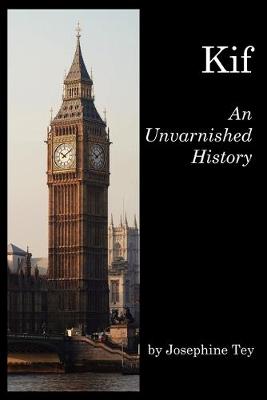Reviewed by brokentune on
In the Highlands, as elsewhere, the whole way of life was changed by the war: from being a relatively stable, hierarchical society, the idea of change and the progress of technology was pervasive, even if the reality of change and progress took longer to arrive. Beth was to become very aware of how Britain was not the ‘home for heroes’ that the returning troops and their families wanted it to be, and her first full-length novel, Kif, was to deal particularly with the effects of economic depression and the difficulties that people, especially returning soldiers, faced after the end of the First World War.
I was really intrigued how Tey (then still writing as Gordon Daviot) would handle this. It was a contemporary issue and surely could have been a somewhat controversial issue (at the time of publication), but while Tey/Daviot showed some of the difficulties that veterans faced when returning to civic life - such as not finding employment - this book was not even scratching the surface of what she could have shown.
Instead, we get an account advertised as "An Unvarnished Story" which reads like a sanitised story for children, telling of a boy's own adventure in the trenches, which are full "old sports". None or the realism of trench warfare that we know of from other accounts is present in Kif.
As for the miserable treatment of veterans back home, this is there to some extent, where Kif cannot find long-term employment and survives on short-term jobs and some winnings at the race grounds. Now, this may have been the most realistic part, but the Tey/Daviot spoils it by Kif - who has evidently no skills in the field - joining a gang of burglars. He's caught, he's sent down. Upon his release, he is unemployable. Then tragedy strikes again.
The problem I have with this part is that Kif knowingly turns to crime. He is not forced into it. There is no compulsion for him to join the burglars, but it is portrayed as a splendid whim that lets him join up. In turn, how does this then portray issues that ordinary men faced who did not turn to crime?
This book was interesting from the point of seeing Tey/Daviot develop as a writer, but it did not work for me as a worthwhile book.
Reading updates
- Started reading
- 13 November, 2017: Finished reading
- 13 November, 2017: Reviewed
